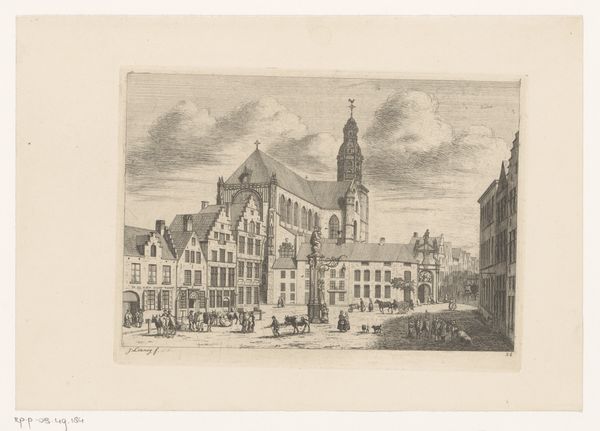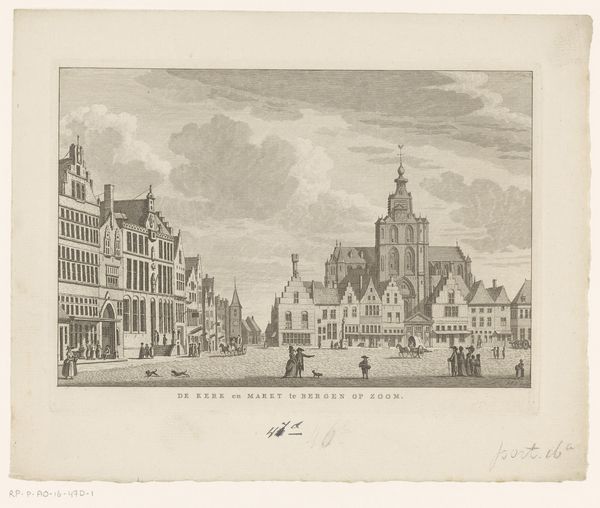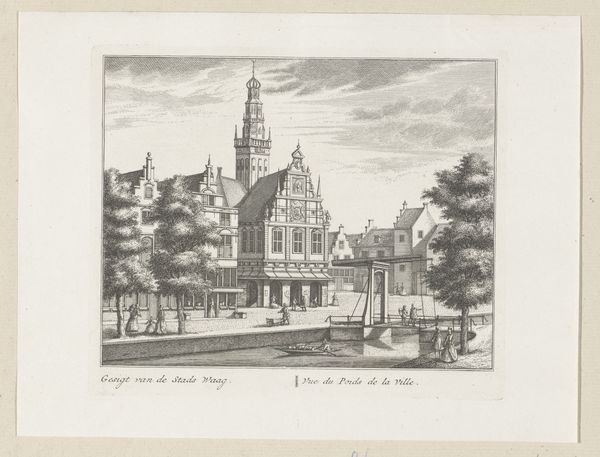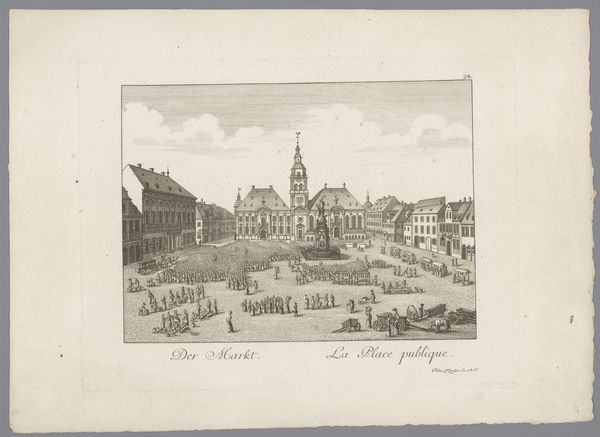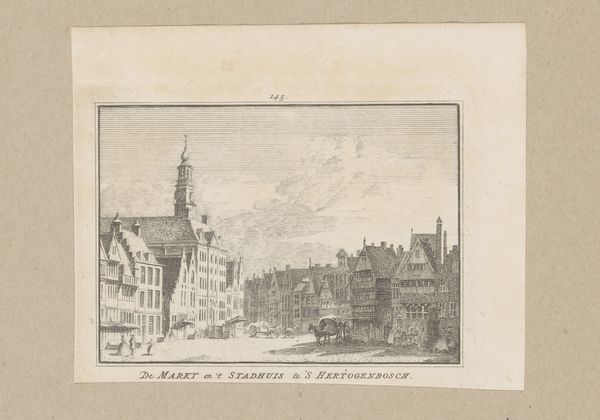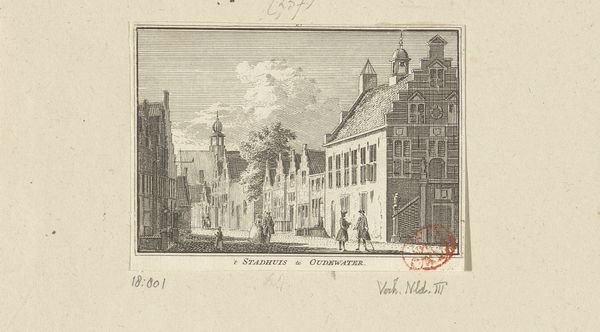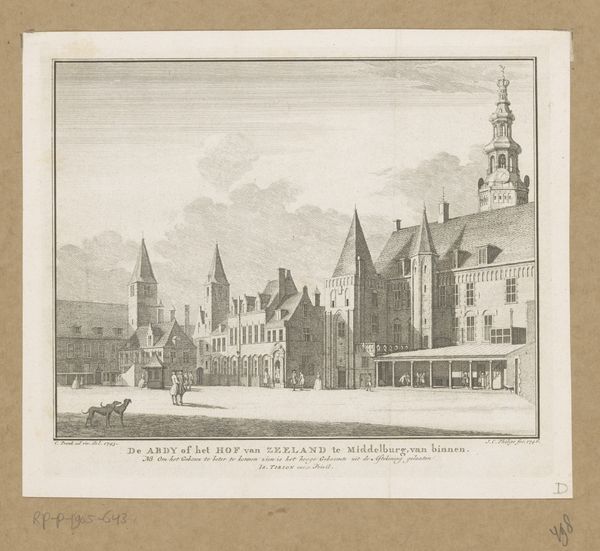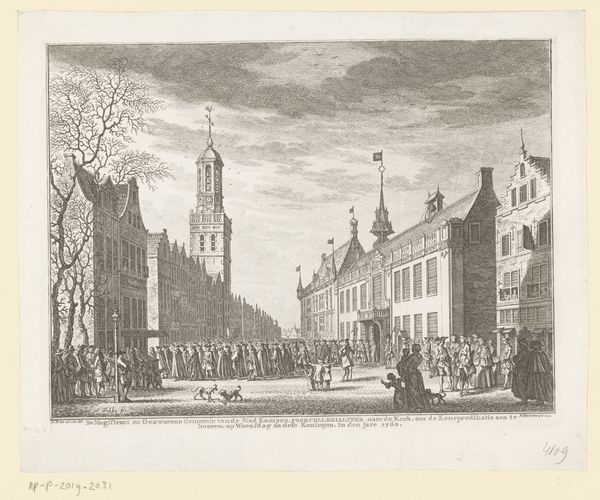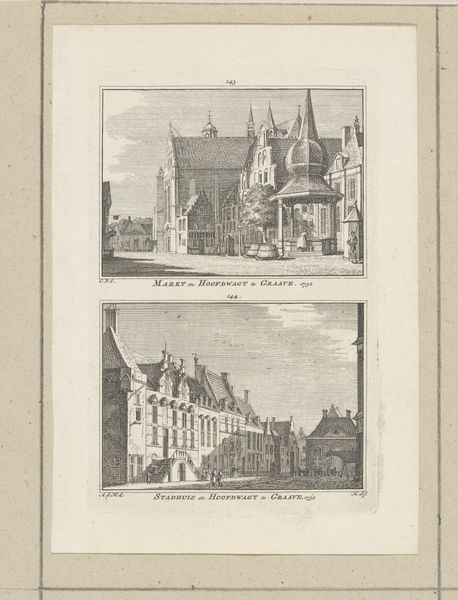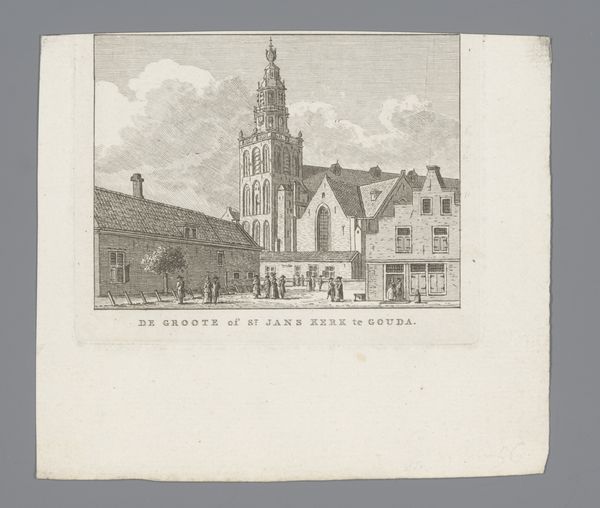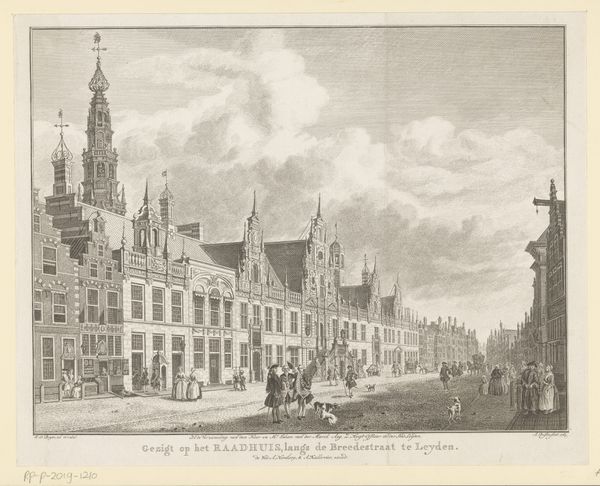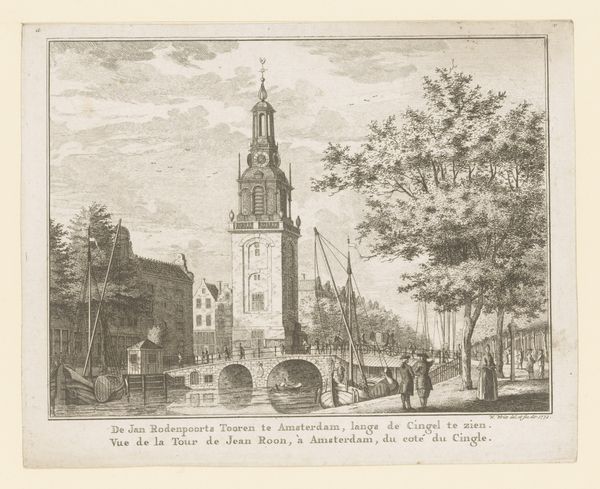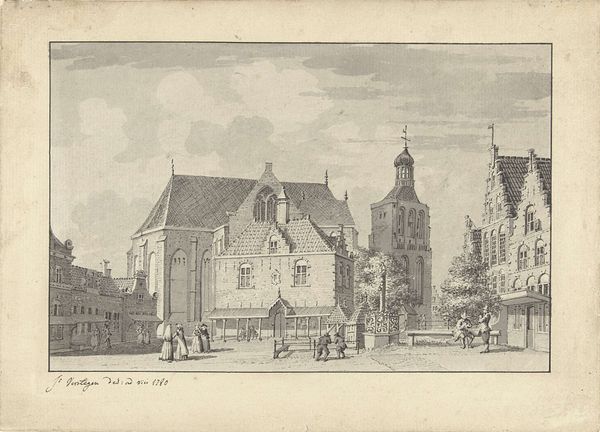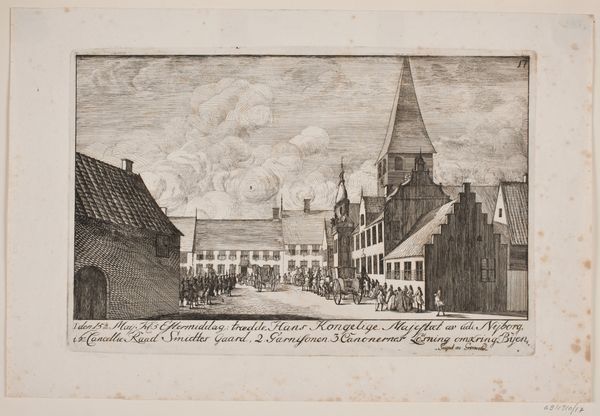
print, etching
#
baroque
#
dutch-golden-age
# print
#
etching
#
old engraving style
#
landscape
#
cityscape
Dimensions: height 85 mm, width 110 mm
Copyright: Rijks Museum: Open Domain
Curator: So, here we have Hendrik Spilman’s "Gezicht op de markt te Arnhem, 1742," an etching dating from sometime between 1745 and 1774. The details in the etching are fascinating to me. What's your first impression? Editor: It's interesting to see such a clear depiction of daily life centuries ago. It feels... orderly, almost idealized. How do you interpret the scene that Spilman is presenting? Curator: I see a carefully constructed social landscape. Think about the Dutch Golden Age. The emphasis on detail, the depiction of a bustling marketplace... it reflects not just a visual record but also the socio-economic power dynamics of the time. Consider who is visible, and perhaps more importantly, who is missing. What social classes do you think are present and absent from this scene? Editor: Well, we see merchants and what looks like wealthier citizens in carriages. Are you suggesting it obscures the lives of the working class or the poor? Curator: Precisely! And consider the role of the church dominating the skyline. It signifies more than just religious importance; it signifies power and authority structures. How does this idealized version of Arnhem challenge or reinforce existing hierarchies? Editor: It’s almost like Spilman is crafting a narrative about a prosperous and stable society. By not depicting other realities he indirectly justifies it. Curator: Exactly. The absence of dissenting voices becomes a powerful statement. Now, how does viewing this artwork through a contemporary lens inform our understanding of the past, and potentially, even the present? Editor: I hadn't considered it that way. It makes you wonder about whose stories are told, and whose are left out, even today. Curator: Indeed! Analyzing art this way, we unearth hidden layers of meaning, fostering critical dialogues about representation, power, and social justice, then and now. Editor: It’s definitely shifted how I see this piece. Thanks for showing me the depth!
Comments
No comments
Be the first to comment and join the conversation on the ultimate creative platform.
